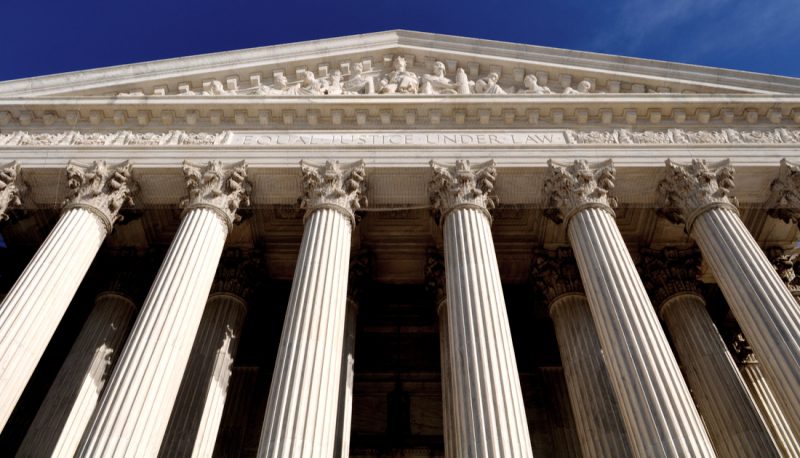“Confirmed Judges, Confirmed Fears” is a blog series documenting the harmful impact of President Trump’s judges on Americans’ rights and liberties. Cases in the series can be found by issue and by judge at this link.
Trump justices Neil Gorsuch and Brett Kavanaugh cast the deciding votes to rule that a man who had lived in the US for 25 years with his family could not apply for cancellation of deportation and generally to make it harder for such individuals to get such relief. The March 2021 case is Pereida v Wilkinson.
Clemente Pereida was born in Mexico and has lived in the US for approximately 25 years. He and his wife have three children, one of whom is a US citizen, and he has helped support his family by working in construction and cleaning. When he received notice some years ago to appear at a deportation proceeding, he asked the Attorney General to cancel his removal, under a law that allows such relief if deportation would result in “extreme hardship” to a relative who is a US citizen, like one of Pereida’s children.
The law also provides that a person cannot apply for such relief if convicted of a crime involving “moral turpitude.” In 2010, Pereida had paid a $100 fine after pleading no contest to a charge under Nebraska state law of “attempted criminal impersonation” –in Pereida’s case, he had used a fake Social Security card to get a job as a janitor. Because the overall state statute concerns crimes of “moral turpitude,” the government contended that Pereida was not eligible to apply for relief from deportation from the Attorney General.
Pereida maintained that the particular offense he had committed did not involve moral turpitude, and the government should be required to prove that it did. Immigration authorities and the Eighth Circuit ruled that the record was unclear, and that the burden was on Pereida to prove that his offense did not involve moral turpitude. The Supreme Court heard argument in the case before Justice Barrett joined the Court, so only eight justices participated in the decision.
In a 5-3 opinion written by Trump Justice Gorsuch in which he and Trump Justice Kavanaugh provided the deciding votes, the Supreme Court affirmed. Gorsuch acknowledged that the record was unclear, but held that “those in Mr. Pereida’s shoes must prove that they have not been convicted” of an offense involving “moral turpitude,” and the burden of proof remains on the applicant for this “narrow pathway to relief.”
Justice Stephen Breyer strongly dissented, for himself and Justices Sonia Sotomayor and Elena Kagan. Breyer pointed out that the majority’s ruling risks making deportation proceedings “less fair and less predictable”, particularly because of problems like “cursory state records” as in Pereida’s case. Lucas Guttentag, former senior counselor to the Secretary of Homeland Security, went even further, explaining that the ruling would amount to a “one-way street” making it more likely that undocumented immigrants “will be deported for relatively minor state crimes.”
Hopefully Congress and the Biden Administration can take steps to remedy the majority’s ruling. For now, at least, the case is yet another example of Trump justices casting deciding votes that harm immigrants to the US.

